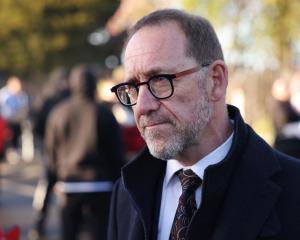
Education Minister Hekia Parata is retiring from politics.
In a shock move Ms Parata announced today she will not be contesting the next election.
She said she advised Prime Minister John Key of her decision earlier this year.
"It is a privilege to be part of the John Key-led Government. However this is the right decision for me and my family, and it is the right time to make my intentions known.
"I have no plans beyond serving as Education Minister as long as the Prime Minister wishes me to. There are still a number of deliverables in the education work plan in the meantime and my focus and energy will be unwavering.
"It is an honour to work each day in this portfolio - it's true that it involves a number of difficult decisions but I have been committed to making the right decision for our children and young people."
Ms Parata was elected to Parliament in 2008 and has served as Education Minister since 2011. Her departure is unexpected - she is currently overseeing the biggest education reforms since 1989.
Her biggest achievement to date and potentially her legacy has been getting through changes to enable and encourage groups of local schools to work together, with teachers and principals paid more to take a lead in those new "communities of learning".
Not as headline-grabbing as online schools or charter school expansions, the policy isn't particularly ideological either - it is similar to an earlier policy proposal from the Post Primary Teachers Association (PPTA).
Nonetheless, significant work and compromises were made to convince the secondary school union to cautiously back a key National policy in election year (the primary school union NZEI spoke out against the reform).
Ms Parata has had her low moments in the portfolio, with most occurring in 2012 - the year she calls her annus horribilis.
That saw an embarrassing U-turn on plans to increase class sizes, a backlash against her handling of proposals to merge or close Christchurch schools, and the implementation of the disastrous Novopay school payroll system.
There was speculation that Key would dump her from the portfolio, but he backed her and she has been pushing through a raft of changes including clearing the way for online schools (COOLs) and an overhaul of the school and ECE funding, that will scrap the decile system.
One funding proposal to give schools a "global budget" has been strongly rejected by the education unions as a return to bulk-funding, sparking classroom disruption as the PPTA and NZEI held joint meetings across the country.
Before entering Parliament in 2008, Ms Parata held a number of public servant positions including in the Ministry of Foreign Affairs and Trade and advising former Labour Prime Minister David Lange during the period when Tomorrow's Schools was developed and approved.
She has two daughters of university age and is married to Sir Wira Gardiner, founding director of the Waitangi Tribunal, with whom she formed a consultancy firm.
After Don Brash's Orewa speech on "special treatment" for Maori, Ms Parata resigned her party membership and attacked the speech in a newspaper opinion piece.
She returned to the fold under John Key's leadership. Her maiden speech mentioned education five times. Three years later she took over the crucial portfolio from Anne Tolley.
Associate Education Minister Nikki Kaye's breast cancer diagnosis has seen Ms Parata take on more work recently.












